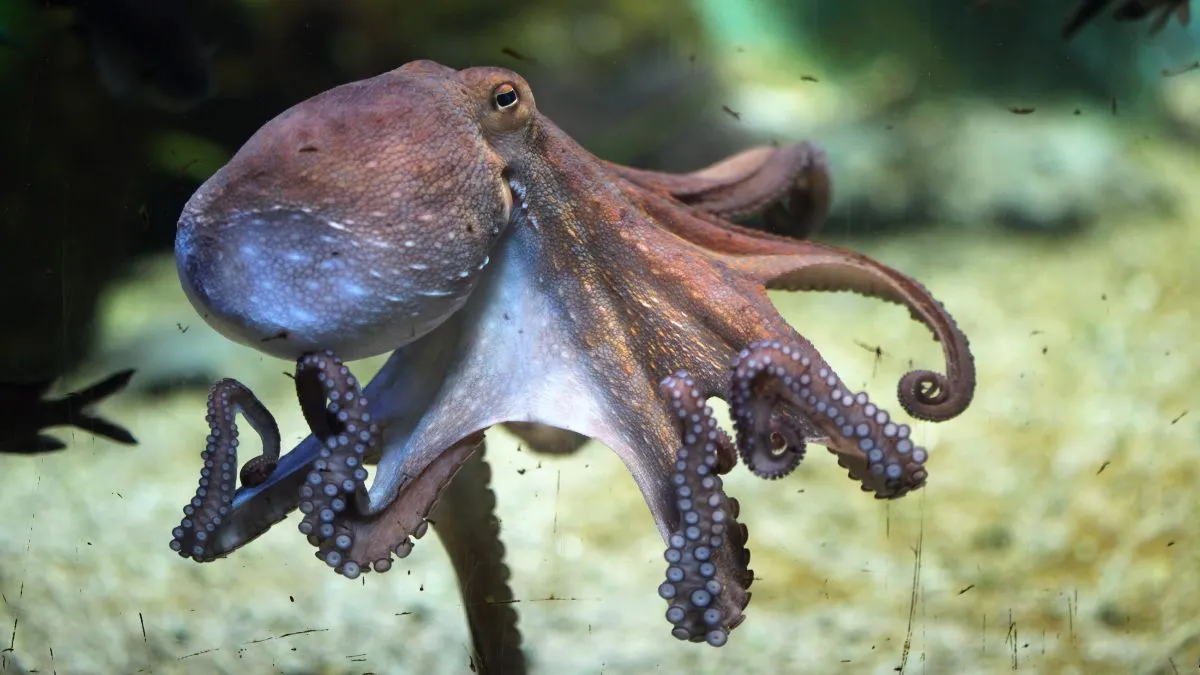- By Shailvee Tiwari
- Mon, 26 May 2025 11:01 AM (IST)
- Source:JND
Google Googly Of The Day: When we think about blood, the first thing that comes to mind is its red color. When we get cut or watch a medical drama, we see that. However, this red-blood rule does not apply to all creatures. The octopus is among the most fascinating exceptions. Indeed, the blood that flows through its body is blue rather than red.
Why Is It Different?
The way oxygen is transported throughout the body holds the key to the solution. Haemoglobin is a unique protein that aids in the transport of oxygen through human blood. Our blood appears red because this protein contains iron, which turns red when it comes into contact with oxygen. Now, things are different in octopuses. They use hemocyanin, a copper-based protein, in place of haemoglobin. Because copper reacts with oxygen in a different way than iron, the blood turns blue rather than red.
Therefore, hemocyanin, not haemoglobin, is the reason why an octopus has blue blood. Quite awesome, isn't it? However, this odd colour has a purpose. Octopuses inhabit the cold, oxygen-poor deep ocean. In such harsh conditions, their blood, which is based on copper, performs better. When there is little around, it makes it easier for them to absorb oxygen. They seem to have a unique survival tool from nature.
Additionally, unlike humans, octopuses have multiple hearts. Three of them. The third heart circulates blood throughout the body after two send it to the gills for oxygen. Their primary heart rests when they swim, which is why they frequently favour crawling.
Other Creatures With Blue Blood:
This adaptation must have begun long ago in ocean animals because blue blood is also found in other sea creatures like squids and cuttlefish. Despite their dissimilar appearance, horseshoe crabs also have blue blood. This trick seems to be very popular with nature. Curiously, researchers are also looking into the potential health advantages of octopus blood. In the future, certain components of their blood might aid in the creation of vaccines or cancer treatments. Therefore, this blue blood is more than just a fun fact; it might also be useful to us.
Final Thought:
The next time you consider octopuses, keep in mind that there are other fascinating aspects of them besides their brains. Even in the deep, dark sea, nature can be intelligent and adaptive, as evidenced by the blue blood coursing through their bodies.

